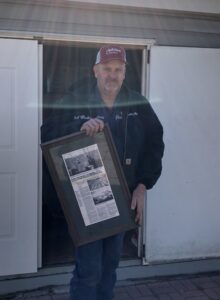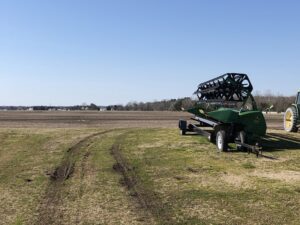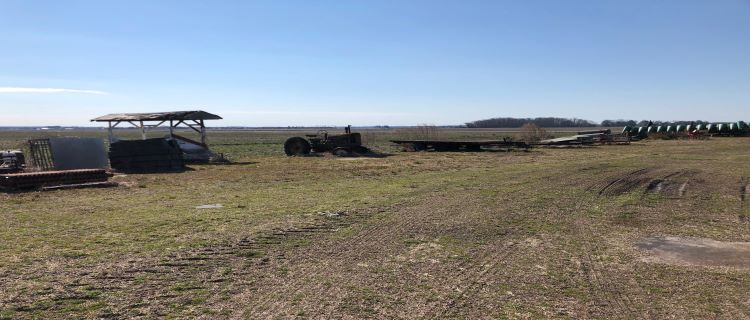The Weatherly family has a long history in the farming industry. The Weatherly farm was started in the 1930s by Scott Weatherly’s grandfather. After being passed down to Scott’s father, Scott joined his father in farming in 1986 and then took over the farm in 2012. The farm, spanning over 130 acres in the City of Chesapeake, has seen great harvests of cotton, corn, soybeans, and wheat — rotating with spikes in price, demand, and the weather.
Technology has been a major factor in their recent success, allowing Weatherly to take advantage of many resources to increase their yields. In fact, he has managed record-breaking yields, while also serving as stewards to the environment in utilizing nutrient management plans, satellite, and steering technology.
 In addition to the year-round work that he and his crew commit to, Scott Weatherly has worked to preserve his family’s heritage by undertaking the restoration of a 1935 John Deere tractor. His passion for agriculture is strong, which keeps him going day in and day out, through the good times and bad.
In addition to the year-round work that he and his crew commit to, Scott Weatherly has worked to preserve his family’s heritage by undertaking the restoration of a 1935 John Deere tractor. His passion for agriculture is strong, which keeps him going day in and day out, through the good times and bad.
Like other farmers who choose to use biosolids, he has found that the benefits of land application are remarkable. With the precision agriculture you can see exactly where one field ends and another starts when applying fertilizer and biosolids. This is a great benefit to the environment and provides an assist to the bottom line as well.
“The results in yield are equally as noticeable and precise,” he said. “It’s easy to see to the eye where biosolids were applied and where application stopped.”
When asked about the largest challenges he faces, Weatherly quickly pointed to hurricanes, which can create intense damage to crops. When hurricanes hit, they rip off pods to soybeans, crush corn, and destroy bowls on cotton.
“If farming were so easy, everyone would be doing it,” Weatherly said.
Weatherly looks forward to another season; last year started off wet with a lot of precipitation. The spicket seemingly turned off, resulting in an especially dry period, followed by a very wet end to the year. This caused havoc on planting, management, and harvest.
Planning is critical to applying biosolids; the challenge is finding an opportunity to get in the fields when they are not soaked from rain to maximize the benefit of the application of biosolids.
While 2021 has started off wet with rain 18 of the last 25 days in February, Weatherly is hoping with the right weather, the appropriate application of biosolids, and a little luck, he will have another successful year.
